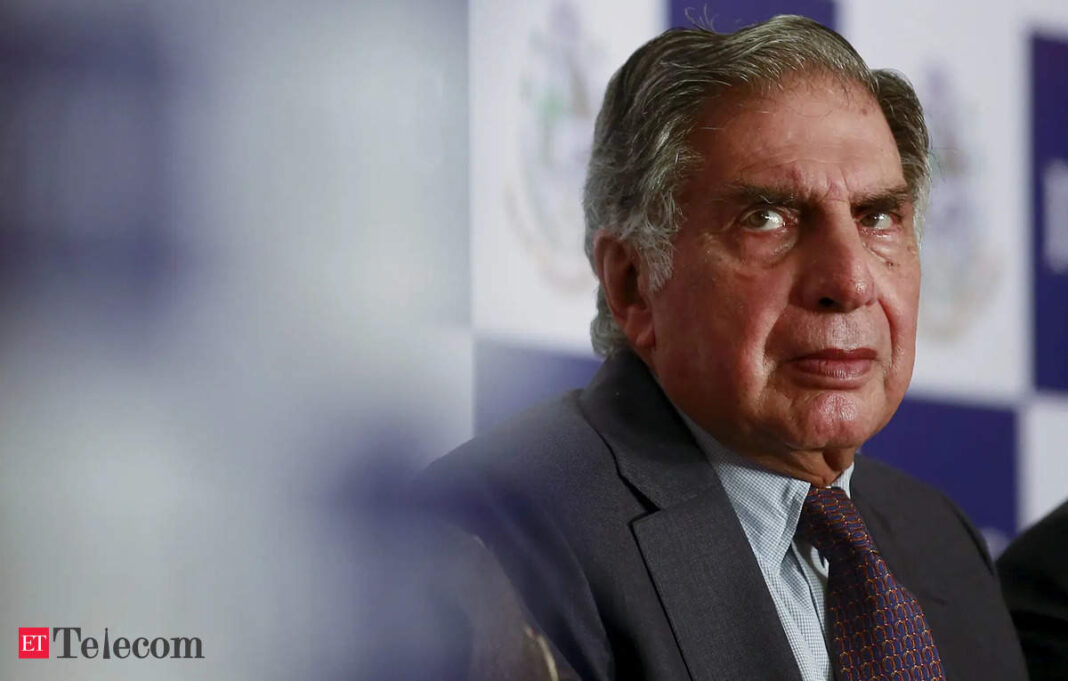In Short:
Ratan Tata, the influential industrialist and former leader of the Tata Group, passed away at 86. He transformed Tata into a global powerhouse, overseeing major acquisitions like Jaguar and Tetley Tea. Despite challenges, including the failed Tata Nano, he grew revenues significantly. Tata briefly returned to lead during a crisis and later focused on philanthropy. A respected figure, he engaged with the world via social media.
Ratan Tata, the prominent industrialist, has passed away at the age of 86. He was instrumental in transforming Tata Group into a globally recognized conglomerate, with diverse ventures spanning from software to sports cars.
Initially a shy student with aspirations to become an architect, Tata was working in the United States when he was called back by his grandmother, who raised him, to join the family business. He began his career in 1962, spending time in a hostel for apprentices and working on the shop floor near blast furnaces.
Tata reflected on this challenging time, stating, “It was terrible at that time, but if I look back at it, it’s been a very worthwhile experience because I have spent years hand-in-hand with the workers.”
Leadership and Expansion
In 1991, Tata assumed leadership of the family empire amid significant free-market reforms introduced by the Indian government. During his 21-year tenure, he significantly expanded the conglomerate’s global presence, acquiring prestigious British luxury brands such as Jaguar and Land Rover.
Tata’s aspirations for the group, originally established during the British colonial era, were not initially embraced by older board members. To address this, he introduced a company-wide retirement age policy.
Risk Appetite and Notable Acquisitions
Born in Bombay (now Mumbai) in 1937, the Cornell University-educated Tata was recognized for his bold risk-taking approach. In 2004, he publicly listed Tata Consultancy Services at a time of widespread apprehension regarding technology investments. He articulated a vision for the Tata Group to “spread its wings far beyond India,” leading to a world tour that resulted in the acquisition of esteemed brands like Britain’s Tetley Tea and Anglo-Dutch steel firm Corus.
One of Tata’s most notable acquisitions was the purchase of the struggling Jaguar and Land Rover brands for $2.3 billion in 2008, marking a significant milestone in his career. However, the acquisition of Corus for $13.7 billion faced challenges as demand for European steel declined due to strong competition from China. Additionally, his ambitious project, the Tata Nano, reputed as the world’s most affordable car, ultimately fell short in the Indian market.
Despite these setbacks, Tata’s successes overshadowed the failures, with the Tata Group‘s revenues soaring from approximately $6 billion to $100 billion, expanding its footprint to over 100 countries.
Legacy and Controversies
A highly respected figure in India’s corporate landscape, Tata could not evade all controversy. In 2011, he was questioned by a parliamentary watchdog investigating a multi-billion-dollar telecom licensing scam, although the group was later cleared of any wrongdoing. Upon his retirement in 2012, which coincided with his 75th birthday, accolades poured in, with fellow industrialist Rahul Bajaj describing his leadership as “outstanding.” Tata remarked, “I have devoted my life, as best I could, to the welfare of the group.”
Return to Leadership
Tata’s retirement proved to be short-lived. In 2016, he returned to lead the group during one of its most challenging periods, following the controversial dismissal of his appointed successor, Cyrus Mistry. Mistry’s tenure was mired in performance issues and contentious divestments aimed at reducing the conglomerate’s significant debt. The public feud that arose between Tata and Mistry captured widespread attention, resulting in legal disputes and impacting the group’s reputation.
Following Mistry’s exit, the Tata Group demonstrated resilience, welcoming the debt-laden Air India back into its fold in 2021, decades after its nationalization. As a lifelong bachelor, Tata later focused on overseeing the group’s charitable initiatives and investing in dynamic startups across India.
A stalwart of the dwindling Zoroastrian Parsi community, Tata also embraced social media, joining Instagram at the age of 81, where he captivated followers with posts celebrating his passion for cars, aviation, and dogs.





